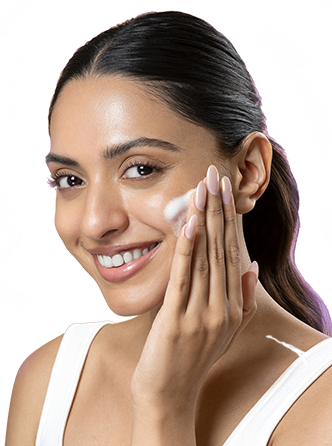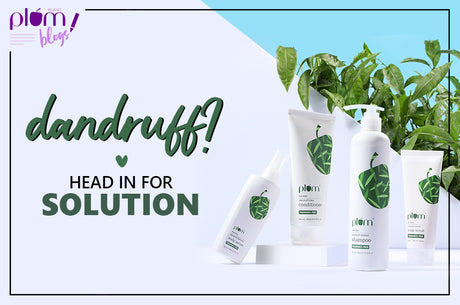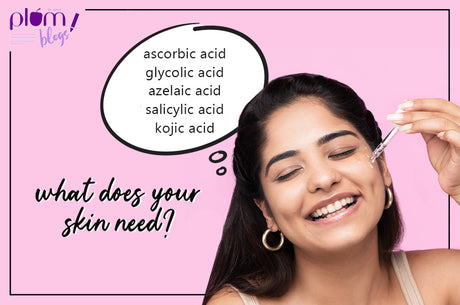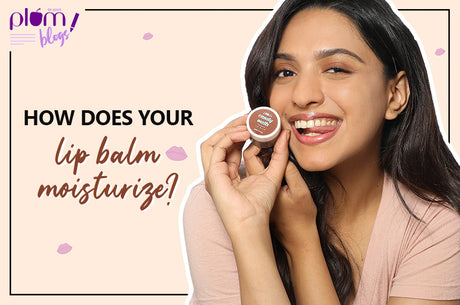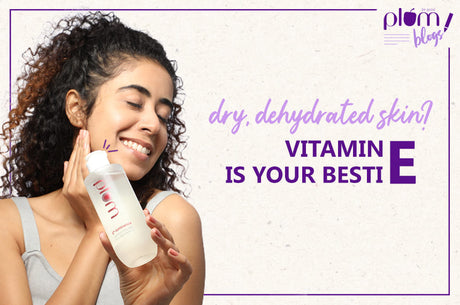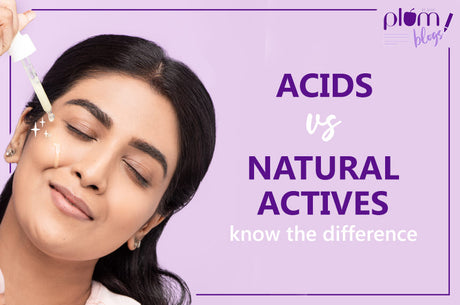![]()
What are silicones and how do they help? Are they safe to use? Should you consider going silicone-free in your products? Or is it okay to use them? Read on to find out!
Silicones are a large family consisting of hundreds of compounds. These compounds contain silicon and oxygen atoms (as main atoms) along with atoms of other elements.In ingredient lists of products, they can by identified easily as ingredients whose names end with "cone," "col," "conol" or "zane/xane."
They are widely used in skincare products,makeup and haircare products for enhanced product performance and results.
Silicones in skincare
![]()
Silicones in skincare products can be formulated in different ways to enhance the feel of a product. They can be used to provide a matte, non-sticky, non-oily finish in products such as sunscreens and also make these products sweat-proof and water-proof (since they don’t allow moisture to enter the skin). They help fill in lines and imperfections in the skin, making them excellent for using in primers and liquid foundations. They are a boon for leave-on skincare products.
Silicones have not been known to irritate skin, since their concentrations in skincare products are fairly low. They are generally inert and non-reactive. Also, they only form a layer on the skin and don’t penetrate it. The layer allows some ingredients/nutrients to pass through while blocking out moisture and also preventing moisture from leaving the skin.
Issues can occur if concentration of silicones is high or if the type of silicone used is too occlusive. (Occlusive: Something that 'blocks', in this case, the silicone forms a layer on the skin and blocks moisture from entering into/leaving the skin).
Some dirt or bacteria can pass through the silicone layer and stay on in the skin for hours before the product is removed.
What about sensitive skin?
Sensitive skin can react to certain (but not all) silicones. Those with sensitive skin are advised to avoid products with high silicone concentrations unless they find that these suit their skin. However, silicones are widely present in products-they may even be present in products that do not react with the skin. The suitability of the product depends on the person's skin type, type of silicones present in the product and concentration of silicones in the product.
Silicones in haircare
![]()
According to hair experts, silicones are great for giving hair a slippery, smooth and shiny effect. They prevent moisture loss and also seal in the benefits that the hair gets from conditioners.
Silicones also prevent hair from becoming oily, since they repel moisture.
Silicone buildup is a major issue that can occur when silicones are used for haircare. They have been said to accumulate in hair and do not get washed off easily. This leads to buildup, making the hair heavy and leading to breakage over the long term.‘Water-soluble silicones’ are said to cause less buildup than ‘non water-soluble silicones’, which are comparatively harder to wash off.
But using the right silicones, in the right amounts can help resolve these problems and help people get the benefits of silicones without the harmful effects. Not all silicones are the same and not all are equally occlusive, heavy or difficult to remove.
Things to watch out for
While formulating/using skincare and haircare products with silicones, one must look out for:
- Types of silicones used
- Silicone concentration in a product formula
- Interaction of product with skin/hair
- Ease of washing off/removing the product
Conclusion
Silicones are non-toxic and almost chemically inert. They have been safely used for decades now. The EWG (Environmental Working Group) gives most silicones a safety rating of 1 (best possible rating), so most silicones are safe for our use. We have to watch for their physical interaction with the hair/skin. We have to make sure we formulate them such that they do not prevent skin/hair from breathing and absorbing essential nutrients, they do not cause buildup (in hair) and give all the benefits of a smooth, shiny, non-oily finish, which have been delighting users for decades. It is indeed possible to formulate products that give us the benefits of silicones without the harmful effects. That's where smart chemistry comes in...
Disclaimer: As of the time of writing this post, some Plum products may include some silicones. This post itself is unbiased and is not influenced by our current choice of ingredients.
Related posts
10 commandments for sensitive skin
How to look office-ready in 7 minutes flat!
Do all alcohols damage skin?
Why does my face sweat after applying sunscreen? And 5 other sunscreen queries answered!
Simply Speaking: Comedogenic
Related products


